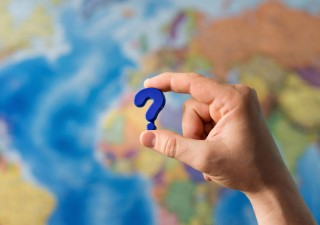Marrakesh Treaty: Ending the “book famine”
29 March 2019
 By Johnny Chan.
By Johnny Chan.
Contracting parties to the Marrakesh Treaty to Facilitate Access to Published Works for Persons Who Are Blind, Visually Impaired or Otherwise Print Disabled adopt national law provisions that permit the production of books in accessible formats, such as Braille, e-text, audio or large print, by organizations known as authorized entities that serve people who are print disabled. It also allows for the exchange of such accessible texts across national boundaries, all without requesting authorization from the copyright owner.
The World Health Organization estimates that 253 million are living with visual impairments around the world, with the majority located in lower-income countries.
The treaty was adopted on June 27, 2013, at a diplomatic conference organized by WIPO and hosted by the Kingdom of Morocco in Marrakesh. The treaty entered into force on September 30, 2016, three months after it gained the necessary 20 ratifications or accessions by WIPO members.
WIPO and its partners created the Accessible Books Consortium in 2014 to help implement the Marrakesh Treaty at a practical level. Its activities include the ABC Global Book Service, with 320,000 titles currently available for cross-border exchange under the Treaty’s terms. This number will eventually grow to 370,000 after the Treaty enters into force in the US, when titles can be added from the US National Library Service for the Blind and Physically Handicapped, a long-standing member of ABC.
Forty-seven authorized entities have joined the ABC Global Book Service, which contains accessible books in 76 languages. The majority of the Book Service’s titles are available in high-quality, human-narrated audiobooks.
ABC also works to promote the creation of “born-accessible” texts that can be immediately used by people with visual impairments at the time of first publication, further streamlining the process to bring the world’s knowledge and culture into the hands of people living with visual impairments.
America Finally Joins Marrakesh Treaty
The United States has joined the World Intellectual Property Office’s fast-growing Marrakesh Treaty as its 50th member, adding a major global publishing centre to the treaty that promotes the increased worldwide availability of texts specially adapted for use by persons with visual or print impairments.
The US is home to the largest number of English-language texts in accessible formats, such as Braille, for use by people living with print or visual disabilities. The treaty eases the creation and international transfer of accessible texts among its 50 contracting parties, which cover 78 countries (including the 28-member European Union).
US President Donald J. Trump signed the Marrakesh Treaty ratification document, which was received by WIPO director general Francis Gurry from Mark Cassayre, chargé d’affaires of the US Mission to the United Nations in Geneva, on February 8, 2019.
When the treaty takes effect in the US in May, some 550,000 accessible texts will become immediately available to visually impaired persons living in Marrakesh Treaty-adherent countries, according to figures from the US-based National Federation of the Blind.
“The Marrakesh Treaty is WIPO’s fastest-growing treaty and we hope it becomes a universal one soon, so visually impaired people in every corner of the globe can more easily benefit from learning and culture no matter where it is created,” Gurry said. “The US already houses the world’s largest repository of accessible English language material, representing a major increase in the global resource base for visually impaired people living in countries that have joined the Marrakesh Treaty.”
“I’m proud of American leadership and the US Patent and Trademark Office’s efforts in the negotiation of the Marrakesh Treaty, and the opportunities that our ratification creates for the blind and visually impaired community in the United States and around the world,” said Andrei Iancu, undersecretary of commerce for intellectual property and director of the USPTO. “This treaty establishes an important mechanism to both protect intellectual property rights and expand access to information and resources.”
“The United States’ formal membership in the Marrakesh Treaty marks a major achievement for our country and a significant positive step forward for the millions of persons who are blind and visually impaired throughout the world,” said Karyn A. Temple, acting register of copyrights and director of the United States Copyright Office. “The United States will now join our fellow nations in promoting greater accessibility to print materials around the globe.”
“The National Federation of the Blind seeks the removal of all artificial or unnecessary barriers to access to knowledge by the blind,” said Mark Riccobono, president of the National Federation of the Blind. “That is why we championed the Marrakesh Treaty and fought for its signing and ratification by the US. Today’s deposit of the US ratification instrument represents the culmination of that effort, but even more importantly, it represents greater access to the world’s literature and knowledge for blind people in America and across the world. We are therefore pleased to celebrate this historic moment with our blind brothers and sisters everywhere.”
“We pause to celebrate this moment as the United States formally joins the Marrakesh Treaty,” said Maria A. Pallante, president and CEO of the Association of American Publishers. “Having worked so tirelessly with so many talented partners to realize a better legal framework for accessible formats, publishers now salute the many readers throughout the world who are blind, visually impaired or otherwise living with print disabilities. Congratulations and happy reading!”
Johnny Chan






